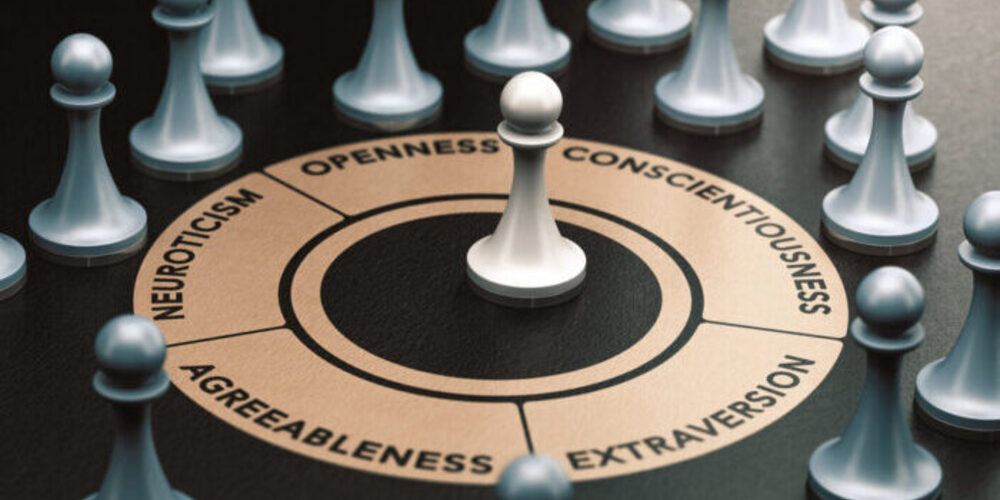A job at sea comes with great benefits and significant challenges as well. For this reason, seafarers must work on improving or adding specific traits in their personality, that will help them, not only cope with the challenges that may come, but also excel at their job. So, what are these necessary personality traits that every seafarer should have?
Strong work ethic, tenacity, punctuality, courage and diligence, are all skills highly appreciated in many industries, however in maritime these are virtual necessities. Being stuck on a ship for months, without being able to see your family and friends, unexpected challenges that require immediate solution, and stress, can very easily take a toll on every person. Considering these difficulties, the following are important for every seafarer to navigate through all challenges while at sea.
1. Decision Making
Decision making, along with critical thinking are must-haves traits for every seafarer. In every seaman’s carreer there will be unpleasant and tough situations, such as bad weather or mechanical fault in the ship.
For such instances, seafarers should be able to think quickly and in a way to coordinate and solve a problem. This would very easily put them in a position where they will need to take some serious decision at that very moment.
Therefore, it is easily understood how vital it is to make decision, in order to ensure the safety of vessel, crew and themselves.
2. Teamwork
Working on board is not an individual work. With many seafarers onboard a ship, seamen must be able to able work as a team.
Namely, seafarers are expected to be friendly and matured, acting with a positive attitude. With cooperation, team spirit effectively rises, thus contriburing to a greater overall – and therefore personal – well-being.
3. Conscientiousness
A conscientious person is characterized by good impulse control, and goal-directed behaviors. Conscientiousness makes people plan ahead, paying attention to detail. This leads to a set schedule that enables anyone to finish important tasks right away and not procrastinate.
In addition, conscientious people think about how their behavior affects others. Such a trait is vital in an enviroment that includes many people of different nationalities, cultures, and religions, such as a ship, in order to preserve the cohesion of the team.
4. Adaptability
Adaptability is the capacity of being open-minded and flexible with creative approaches. Namely, when things don’t go as planned, seafarers must be ready to look at the situation in a new way to find an alternative solution.
In order to improve the adaptability skill, seafarers must work on their metacognitive ability, which is the ability to think about the way we think. In order to do that, seeking feedback and reflecting on it
are key elements, enabling seafarers to extract critical lessons from their experiences and maximise learning.
5. Conflict Resolution
Anyone finding themselves in a working environment has found themselves facing the need for conflict resolution. The response to conflict, of course, differs from person to person. In order to address conflicts effectively, being calm is very important. This will give the chance for better negotiation, in an effort to understand each other and try to reach an agreement.
In addition, maintaining and strengthening a relationship, rather than “winning” the argument, should be the first priority. Everyone should be respectful of the other person and their viewpoint.
6. Leadership
Leadership is a special component of safe operations at sea, which requires specific traits. Leaders should focus on people instead of systems: People are the A and Z of any experience and when leaders focus on people, the numbers will follow.
Moreover, thinking long-term is very important. Famous leaders of the world, from Elon Musk to Steve Jobs, are known for emphasizing on long-term visions as the key of their organization’s success.
7. Communication
Communication is a vital aspect for every seafarers. In order to have a proper communication with the co-workers, seafarers should bare in mind to have conversations instead of having meetings.
This is another an integral part of proper communication. Short conversations are opportunities for the crews or employees to get early feedback on how they were tackling problems. This allows them to retain control of the solution. On the other hand, having meetings is stressful and creates pressure to the participants.
8. Stress resilience
Stress is our body’s response to any kind of event, situation, threat or demand. It is part of the normal process of adaptation to environment and consists of behavioral responses.
Exposure of individuals to a stressor of physical, social, or environmental nature for a long time may make difficult for an individual to cope with.
In order for seafarers to overcome stress, they should focus on their own mental health, by applying the following basic tips:
Think positively: always keep in mind positive thoughts and do more of what makes you happy
Talk and discuss: try not to be lonely and discuss as much as possible your thoughts with others
Take a breath: when you feel pressure, just pause for a moment and take attention on your breathing to feel calm
Time management: organize your work and spend quality time when off duty
9. Self awareness
People with high emotional intelligence are usually very self-aware; meaning that they have the ability to recognize emotions and their impact in both themselves and others.
On an interpersonal level, self-awareness’ benefits are great, as it attracts the trust of others and increases one’s credibility.
Overall, self-awareness establishes the foundation upon which seafarers can link their emotions to the effectiveness of their interactions with others.
Source: safety4sea.com
